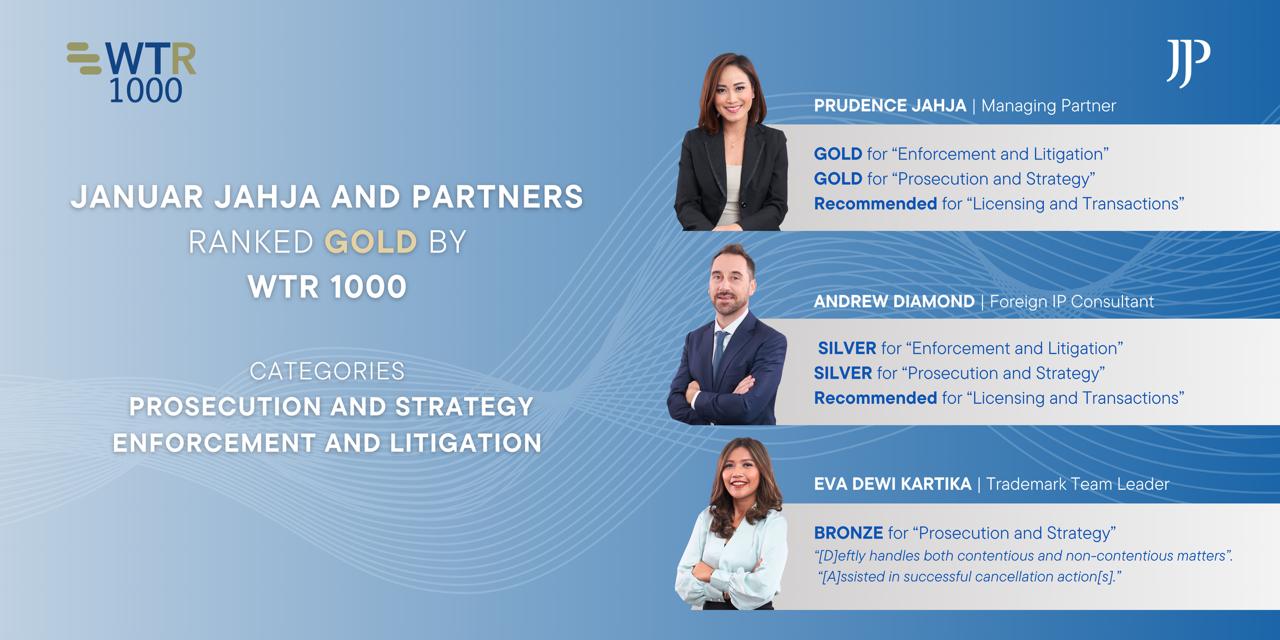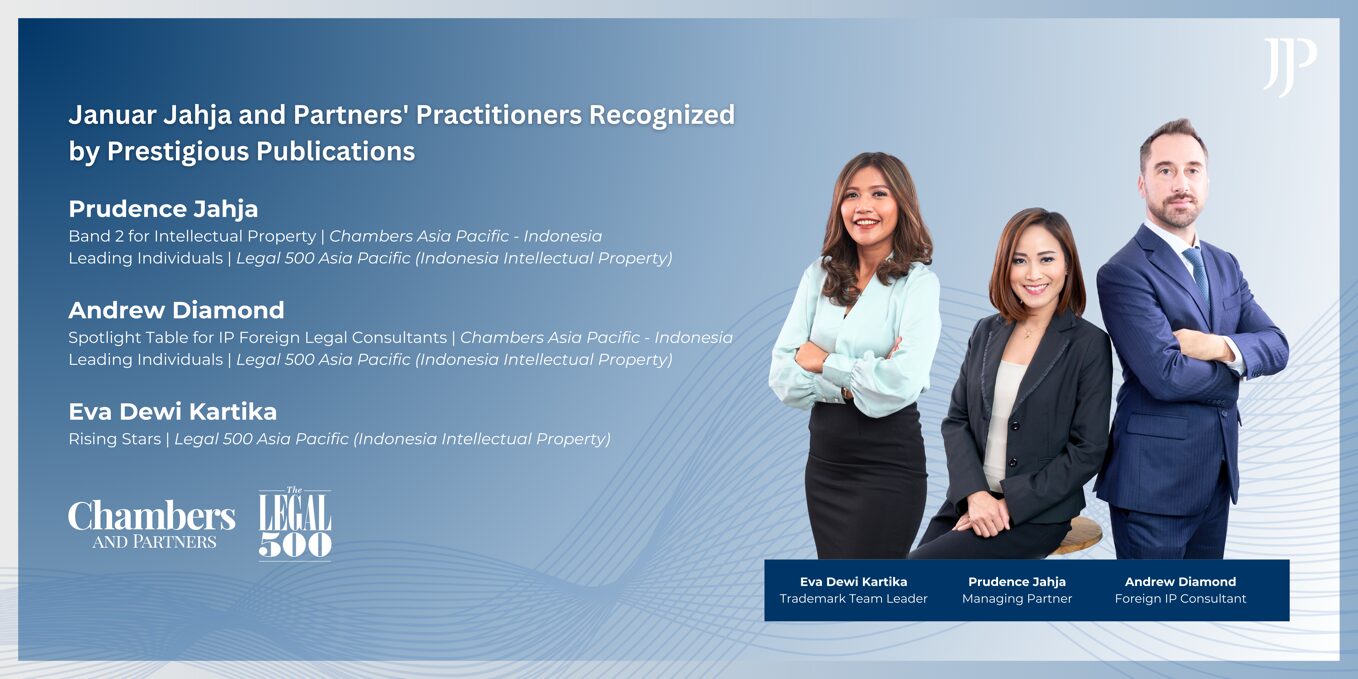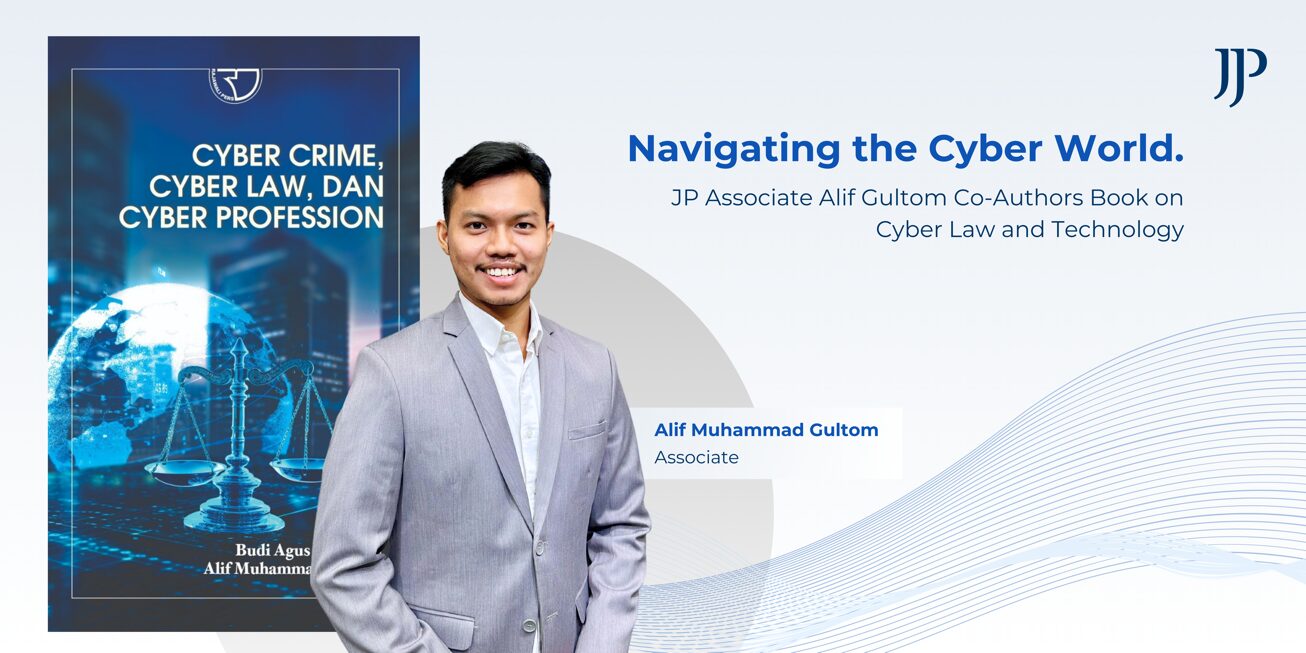By: Andrew F. Diamond, Foreign IP Consultant, Januar Jahja and Partners
Indonesia joined the Madrid System for registration of trademarks and it has been possible to designate the country since 2 January 2018. Since that date, there have been around 20,000 such designations, indicating strong ongoing interest in Indonesia, as it is Southeast Asia’s largest trademark jurisdiction and the region’s biggest economy, as well as the world’s fourth most populous country.
Unofficial reports indicate that the acceptance rate of Madrid applications at the Indonesian Trademark Office is around 80%. With a corresponding rejection rate of around 20%, based on volume alone that leaves a large amount of marks that either have been or will be preliminarily rejected.
Similar to most other IP offices, there are two types of preliminary rejections issued by the Indonesian Trademark Office: partial rejections and total rejections. In either case, the most common reason for rejection is on relative grounds due to the existence of a prior mark that is deemed to be similar in its essential part or entirety with an applied-for mark, covering similar goods/services. A rejection based on absolute grounds is possible if, for example, an examiner views an applied-for mark as being descriptive of the goods/services for which it is applied or lacking any distinguishing features, among other possible reasons.
This guide seeks to explain the intricacies of such rejections and to address some common issues in an effort to aid the understanding of and promote the efficient response to preliminary rejections of Madrid designations in Indonesia.
Deadline
The first and most important task is determining the deadline for responding to a preliminary rejection. In Point 7 of a Notification of Provisional Refusal of an International Registration Designating Indonesia issued by the Indonesian Trademark Office (DGIP), it states that a response must be filed “within 30 (thirty) days from the date on which this provisional refusal was sent by the International Bureau.” This date can be found on the separate WIPO Notification document: it is the last of the three dates listed and corresponds to the description “Date of notification by WIPO to the holder”.
While determining the corresponding deadline may then seem straightforward, what the language on the Notification of Provisional Refusal issued by the DGIP does not say is that the Indonesian Trademark Law actually defines “day” as “working day”, not “calendar day”. Thus, there is a strong argument that the deadline should actually be 30 working days from the date the notification was sent by WIPO to the holder, which could give the holder a vital few extra days to file a response.
Historically, determining deadlines with precision for filing objections to preliminary rejections of national applications in Indonesia has been difficult. As discussed above, this issue now appears to have extended itself to International Registrations as well. Given this uncertainty, the deadline with zero risk is counting 30 calendar days from the date the notification was sent by WIPO to the holder. This matches exactly the language on the Trademark Office’s Notification of Provisional Refusal of an International Registration Designating Indonesia.
However, in certain situations, an applicant may want to count 30 working days from the date the notification was sent by WIPO to the holder since it will give the holder more time to prepare and file their response. However, it must be recognized that using this later deadline comes with some risk due to the uncertainty of the actual deadline as mentioned above.
Appointing Local Agent
Unlike in some other jurisdictions, it is currently not possible for a local agent to record themselves as the agent of record for an application designating Indonesia via the Madrid Protocol. Instead, the agent as recorded with WIPO will be listed as the agent of record. While the local agent can receive authority to prepare and submit a response to the initial rejection via a lawful Power of Attorney, they cannot also take over representation of the application generally.
Partial Rejection
A partial rejection means that only some of the requested goods and/or services have been rejected. Usually, the full list of rejected goods/services will not be listed in the Notification of Provisional Refusal. Instead, at the end of Point 6, the goods/services that are not affected by the provisional refusal will be listed. However, if no response is filed at all, then the entire application will be rejected, including any and all previously accepted goods and/or services.
In light of the above, there are four potential options with regards to a partial rejection:
- Voluntary deletion of some conflicting goods/services: This can be done either through a request filed to the International Bureau (IB), providing the Indonesian Trademark Office with a copy via email, or instructing a local agent to directly request the Indonesian Trademark Office to delete certain goods/services from the application.
- File a response accepting rejection of certain goods/services, but also requesting acceptance of any goods/services that were not rejected: This is a common response to these types of partial rejections. Usually, a short, simple letter will suffice, which must be submitted via a local agent. However, as noted above, in order to secure acceptance and thus registration of any goods or services that were not rejected, a response must be filed; otherwise, the entire application will be rejected.
- File a response arguing for registration of all goods/services covered by the application: Here, the local agent will have to submit relevant arguments and supporting documentation to try to convince an examiner to reverse the earlier decision and instead approve all the requested goods/services for registration.
- No Response at all: This will result in the application being rejected in its entirety, even if some goods/services were not originally rejected.
Total Rejection
In this situation, all the requested goods and/or services in all classes have been rejected. This will be stated in Point 5 of the Notification of Provisional Refusal issued by the DGIP. Here, the applicant has the option to file an objection to the total rejection, using relevant arguments and supporting documentation. Generally, letters of consent are not effective in overcoming rejections in relevant circumstances and instead the applicant must rely on substantive argumentation to overcome the Examiner’s rejection.
Future Options
In Indonesia, publication of marks takes place before substantive examination. Thus, if a response is filed to either a partial or total preliminary rejection and the arguments are accepted, then the mark will be approved for registration, with the registration number and grant date assigned sometime thereafter, followed by the issuance of the Statement of Grant of Protection.
On the other hand, if the response is not successful, a final rejection notice will be issued and the applicant will have the right to file an appeal to the Trademark Appeal Commission. Appeals must be filed within 90 days from the date that the decision was sent. Starting from April 2020, it is possible to file such appeals online via the IP Office’s online filing system. Currently, it is taking approximately 12 months for a decision to be issued.
Conclusion
Despite a high acceptance rate overall, international registrations designating Indonesia still have the potential to be rejected in large numbers based on volume alone due to strong continued interest in Indonesia as an economic and IP jurisdiction. In the case of such preliminary rejections, applicants should pay close attention to the above-identified idiosyncrasies within the preliminary rejection stage in Indonesia that may be different from other jurisdictions so as to not unknowingly jeopardize their rights.




